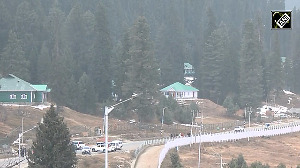Under the deal, Vavasi is acquiring frequency spectrum and licences for Russia and several western European countries. The same SPV that is being formed to acquire a majority stake in Zain will be used to invest in the Russian operations. As part of the agreement half the equity in the SPV will be controlled by the Vavasi group, and the rest will be held by the BSNL-MTNL combine.
Confirming the development, a senior Vavasi group executive said, "We are in the process of acquiring a licence for the new generation (NG)-1 technology and have applied in Russia and four other European countries."
He said talks are on with BSNL and MTNL to get them as partners. BSNL Chairman Kuldeep Goyal, however, did not respond to a query on this issue.
NG-1 technology is an alternative to GSM and CDMA and was developed in the US universities and Vavasi claims that the network needs lower capital expenditure as well as operating expenses.
Vavasi has also applied to the Indian government to allow it to run mobile services based on this technology, but the application is pending. NG-1 operates on bands between 1785 and 1805. The Vavasi-BSNL-MTNL combine will be the first to operate on this band if they get the licence.
As part of the memorandum of association with Vavasi Telegence Ltd, the state-owned corporations have agreed to establish the SPV with an initial paid-up capital of 20,000 Singapore dollars.
Both BSNL and MTNL have been scouting for global acquisitions and the deal with the little-known Vavasi is one of their most ambitious attempts to enter Africa and West Asia on the one hand and the pan-Russian market on the other. Their overseas forays gain significance given that the two companies have been losing market share in India and together account for just around 15 per cent of the mobile telephony market.






